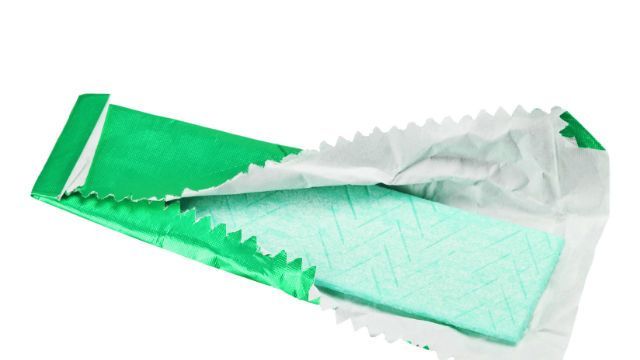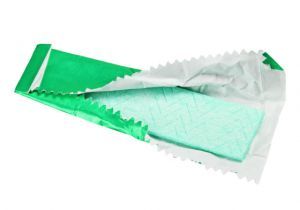
The United States is ranked third, behind only Iran and Saudi Arabia, when it comes to the highest rates of gum chewing around the world. According to recent statistics, 59 percent of Americans report that they chew gum.
Unfortunately for gum fans, there is compelling evidence that this is one habit you’re better off without, including these nine reasons.
People who chew gum are more likely to eat junk food
Research has found that those who chew gum are less likely to eat fruits and vegetables, and are more apt to choose junk food like candy or chips instead.
TMJ
Gum puts stress on the cartilage in the jaw joints that’s meant to absorb shock, and can thus trigger TMJ, a painful chronic condition.
Headaches
Unnecessary chewing can create chronic tightness in the facial muscles located close to your temples. This can put pressure on the nerves that supply blood to this area of your head, which can lead to chronic, intermittent headaches.
Worsening digestive disorders
Chewing gum can worsen digestive disorders and cause IBS sufferers to have flare-ups due to the excess air swallowed while chewing (not to mention the artificial ingredients you are swallowing). This can also put pressure on the intestine and cause cramping and bloating.
Harmful effects of artificial sweeteners
Most sugar-free gum is sweetened with aspartame, an artificial sweetener linked to birth defects, diabetes, cancer and neurological disorders.
Damage to your teeth
Whether you chew sugary or sugar-free, it causes damage to your teeth. Sugar can contribute to tooth decay, while sugar-free gum typically contains acidic flavorings and preservatives that can lead to dental erosion which can literally dissolve your teeth over time.
Other gum is sweetened with high fructose corn syrup, known to be one of the main causes of tooth decay as well as a host of other serious health conditions like cancer, diabetes and obesity.
Releasing toxic mercury into your system
If you have mercury fillings in your teeth, chewing gum can cause this neurotoxin to release from the fillings, and into your body.
Sheep byproducts
 Chewing gum typically contains lanolin, a waxy substance derived from sheep’s wool that helps it stay soft. Because “gum bases” are considered standardized, manufacturers aren’t required to expand on the ingredient list beyond that, and while lanolin it isn’t necessarily harmful, it’s not exactly appetizing.
Chewing gum typically contains lanolin, a waxy substance derived from sheep’s wool that helps it stay soft. Because “gum bases” are considered standardized, manufacturers aren’t required to expand on the ingredient list beyond that, and while lanolin it isn’t necessarily harmful, it’s not exactly appetizing.
Synthetic polymers and latex
Gum is made using synthetic polymers and latex, which can be hard on the digestive system if it’s accidentally swallowed.
Now, isn’t it time to kick that chewing gum habit? Why not chew on a delicious piece of tamarind (https://www.thealternativedaily.com/tantalizing-taste-tamarind-fruit-fights-cancer/), instead?
-The Alternative Daily
Sources:
http://www.organicauthority.com/health/bubble-gums-reasons-to-stop-chewing-gum-health.html
http://www.confectionerynews.com/Markets/Highest-chewing-gum-consumption-worldwide-revealed
http://www.sciencedirect.com/science/article/pii/S1471015313000123
https://www.thealternativedaily.com/tantalizing-taste-tamarind-fruit-fights-cancer

